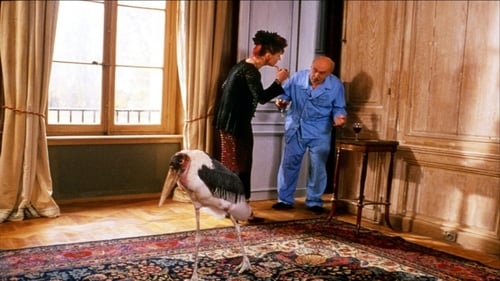
When he loses his position as a powerful government minister, Vincent is dropped by his pretty mistress and must begin life anew, without the privileges of power. As he gradually becomes acquainted with milieus which he d either forgotten or never known and a host of sometimes eccentric, often remarkable everyday people, Vincent really begins to start living again.

Le pharmacien
A story told quietly of Vincent a welder at a large and seemingly toxic plant along the Rhône, living in a village with his sons, wife, and mother, saying little to each other.

serveur
Nicholas is the eldest son of a wealthy suburban family, whose businesswoman mother makes deals from a helicopter and has an affair with her business partner. His cheerful, alcoholic father, on the other hand, is reduced to a prisoner in his room with his devoted dog and electric train set. Unbeknownst to his parents, Nicholas works as a window cleaner and dish washer in a Parisian cafe. He is also in love with the daughter of another cafe's owner, who, however, has an abusive boyfriend. One night, Nicholas sneaks a few drunken drifters into his family wine cellar and his father unexpectedly takes a liking to the stranger.

Monsieur Capentier
Châtelaine Marie-Agnès de Bayonnette lives in her family home with her cousin Solange. The lives of the two old ladies are governed by the traditional codes of aristocracy. When Marie-Agnès died, the heirs from Russia had to fight over the estate with a Japanese company that wanted to buy the property.

Policier
Esta comédia absurda, com seu extenso grupo de vigaristas, ladrões, anarquistas, prostitutas, inspetores-chefes, negociantes de arte e inventores, lembra as vibrantes tapeçarias de Robert Altman. A história gira em torno de dois objetos, um conjunto raro de porcelana de Limoges, do século XVIII, e um retrato aristocrático do século XIX. Quando esses itens são passados, vendidos ou roubados de um personagem para outro, uma vertiginosa dança em volta do excesso começa a tomar forma, o que sugere que, se a história não se repetir, certamente rima. Juntamente com o co-escritor Gérard Brach, cujos outros créditos de co-escrita incluem Repulsão e Tess, Otar Iosseliani usa um leve toque para expor a futilidade da classe e ordem social, transformando em insignificantes as preocupações dos ricos e pobres. Premiada com o Prémio Especial do Júri no 41.º Festival Internacional de Cinema de Veneza.




